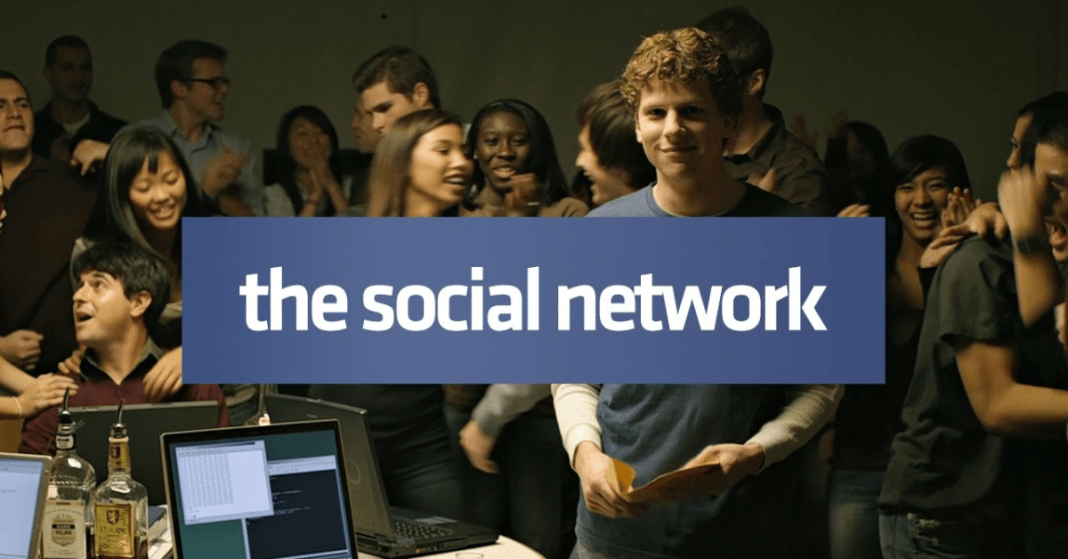In 2010, The Social Network premiered to both critical and commercial acclaim. Directed by David Fincher and scripted by Aaron Sorkin, the film explored the turbulent beginnings of Facebook, the revolutionary social networking platform that reshaped modern communication. Not only did the movie give audiences an engaging story about technology, ambition, and betrayal, but it also left a lasting impact on how technology and innovation are portrayed in cinema.
This article provides an in-depth review of The Social Network, its storyline, cast performances, production quality, and its profound influence on the film industry and pop culture.
Storyline and Themes
The plot of The Social Network unfolds around the complex, rapid rise of Facebook, founded by Harvard student Mark Zuckerberg, portrayed by Jesse Eisenberg. The narrative begins with Zuckerberg being dumped by his girlfriend, leading him to create a website called Facemash. This website, where students rate each other’s attractiveness, gains quick popularity but results in Zuckerberg being penalized by Harvard. However, this event catches the attention of the Winklevoss twins (Armie Hammer), who approach him with an idea for a Harvard-exclusive social network. Inspired but ultimately uninterested in their idea, Zuckerberg teams up with his friend Eduardo Saverin (Andrew Garfield) to develop his own platform, Thefacebook.
As Thefacebook gains traction, Zuckerberg crosses paths with Sean Parker (Justin Timberlake), Napster’s co-founder, who convinces him to expand and drop “the” from the name, creating Facebook. The movie details the rise in Facebook’s popularity and the subsequent legal battles with Saverin, the Winklevoss twins, and other characters involved in the platform’s early stages.
Fincher and Sorkin’s work reveals universal themes of ambition, loyalty, and betrayal—elements that resonate far beyond Facebook’s origin story. Their collaboration weaves these themes into a compelling narrative that appeals to viewers regardless of their familiarity with the tech industry.
The Cast’s Powerful Performances
The film boasts powerful performances from an ensemble cast. Here’s a list of the primary cast members:
- Jesse Eisenberg as Mark Zuckerberg: The socially awkward but brilliant founder of Facebook.
- Andrew Garfield as Eduardo Saverin: Zuckerberg’s best friend and co-founder of Facebook.
- Justin Timberlake as Sean Parker: The charismatic co-founder of Napster who influences Zuckerberg.
- Armie Hammer as Cameron and Tyler Winklevoss: The twins who accuse Zuckerberg of stealing their idea for a social network.
- Max Minghella as Divya Narendra: The business partner of the Winklevoss twins.
- Brenda Song as Christy Lee: A student who becomes involved with Zuckerberg and Saverin.
- Rashida Jones as Marylin Delpy: A junior lawyer involved in the legal disputes.
- Rooney Mara as Erica Albright: Zuckerberg’s girlfriend at the beginning of the film, whose breakup sparks his ambition.
- Joseph Mazzello as Dustin Moskovitz: A close friend of Zuckerberg and an early Facebook employee.
- Wallace Langham as Peter Thiel: The angel investor who helps fund Facebook.
Jesse Eisenberg portrays Zuckerberg as a character fueled by both insecurity and determination. His nuanced acting captures Zuckerberg’s transformation from a socially awkward genius to a figure shrouded in moral ambiguity.
Andrew Garfield shines as Eduardo Saverin, Zuckerberg’s friend and Facebook’s original CFO. Garfield’s portrayal of betrayal and disappointment as Saverin is heartfelt and brings emotional depth to the story. Timberlake, in a memorable role as Sean Parker, brings a blend of charm and manipulativeness that adds tension to the already strained relationships within Facebook’s founding team. Meanwhile, Armie Hammer’s portrayal of the Winklevoss twins, supported by a unique dual role setup, brings in an added layer of conflict and shows Fincher’s innovative approach to storytelling.
Production and Filming Techniques
The Social Network was filmed on a relatively modest budget of $40 million, primarily in Cambridge, Massachusetts, with additional scenes shot in California. Fincher’s meticulous approach to filmmaking is evident throughout the production, from the movie’s visual aesthetics to the high number of takes for certain scenes. For instance, the opening breakup scene took 99 takes to perfect, showcasing Fincher’s dedication to capturing raw emotion and realism.
One of the most challenging aspects of the film’s production involved Armie Hammer’s portrayal of both Winklevoss twins. Fincher achieved this through advanced digital techniques, grafting Hammer’s face onto a body double’s frame. This effect allowed for seamless interaction between the twins, showcasing Fincher’s innovative use of technology in storytelling.
The iconic rowing scenes, filmed at the Henley Royal Regatta, highlight another impressive technical feat. The filmmakers used a miniature faking process to create a captivating visual sequence. Through these creative choices, Fincher transformed a biographical drama into an aesthetically captivating cinematic experience.
Music and Soundtrack: An Award-Winning Score
The film’s score, composed by Trent Reznor and Atticus Ross of Nine Inch Nails, played a crucial role in setting the film’s tone. Their electronic, ambient score underscores the intense emotions and growing tension throughout the narrative. The soundtrack, which won the Academy Award for Best Original Score, enhanced the movie’s impact, making each scene more resonant and emotionally charged.
The combination of the score with the film’s visuals creates a haunting atmosphere that complements the film’s themes. The music not only enhances key moments but also subtly underscores the characters’ emotional arcs, making the audience feel the weight of their decisions and the consequences of their ambitions.
Impact and Legacy
Since its release, The Social Network has been widely regarded as one of the best films of the 2010s and a defining portrayal of modern tech culture. Its critical and commercial success speaks volumes, with over $224 million grossed worldwide. The film was nominated for eight Academy Awards and won three, including Best Adapted Screenplay, highlighting the exceptional writing and storytelling involved.
Critics have praised the film for its sharp dialogue, compelling narrative, and intricate character development. It has maintained a strong reputation since its initial release and is commonly ranked by critics as one of the best films of the 21st century. The Writers Guild of America ranked Sorkin’s screenplay the third greatest of the 21st century, emphasizing its lasting impact on modern storytelling in cinema.
Additionally, The Social Network has sparked discussions about the ethical implications of technology and the impact of social media on society. Its portrayal of Zuckerberg’s character has led to various interpretations, with some viewing him as a visionary entrepreneur while others see him as a morally ambiguous figure. This duality continues to resonate in today’s digital landscape, where the line between innovation and ethics often blurs.
Conclusion
The Social Network serves as more than just a biographical film about Facebook; it is a cautionary tale about ambition, innovation, and the human cost of success. It explores themes of friendship, betrayal, and the impact of technology on our lives, making it relevant even a decade after its release. The film’s masterful direction, compelling performances, and award-winning score contribute to its status as a landmark film in modern cinema.
As discussions around social media, technology, and their influence on society continue, The Social Network stands out as a powerful reminder of the complexities behind the creation of one of the most influential platforms in history. Whether viewed as a drama, a cautionary tale, or a critique of modern entrepreneurship, it remains a cinematic achievement that captures the zeitgeist of the early 21st century.
The Social Network not only entertains but also provokes thought, making it a must-watch for anyone interested in the intersection of technology and society. It is a film that will continue to be studied and appreciated for years to come, solidifying its legacy in the annals of cinematic history.





